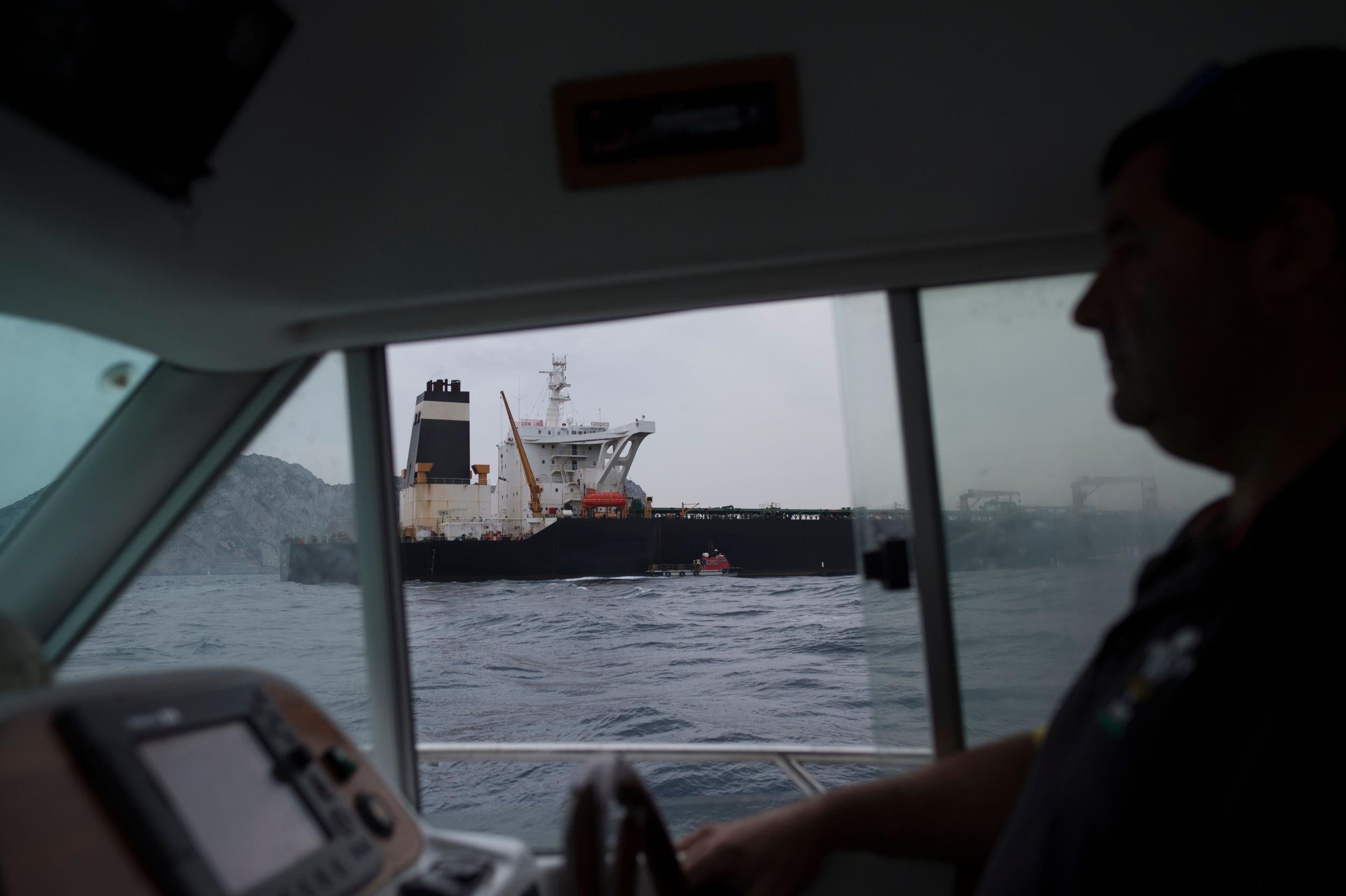Iran tanker crisis: Impending Brexit leaves UK with no choice but to do US bidding – and suffer the consequences
Analysis: Current conflict just the latest in a long history of quagmires in the Middle East, a story that British diplomats know only too well
What on Earth were the British politicians and officials thinking who gave the go-ahead for the seizure of the Iranian oil tanker Grace 1 off Gibraltar on 4 July? Did they truly believe that the Iranians would not retaliate for what they see as a serious escalation in America’s economic war against them?
The British cover story that the sending of 30 Royal Marines by helicopter to take over the tanker was all to do with enforcing EU sanctions on Syria, and nothing to do with US sanctions on Iran, was always pretty thin.
The Spanish foreign minister, Josep Borrell, has said categorically that Britain took over the tanker “following a request from the United States to the United Kingdom”.
One fact about Iranian foreign policy should have been hardwired into the brain of every politician and diplomat in Britain, as it already is in the Middle East, which is that what you do to the Iranians they will do to you at a time and place of their own choosing.
The US and UK backed Saddam Hussein in his invasion of Iran in 1980, but this was not unconnected – though it was impossible to prove – with the suicide bombing that killed 241 US service personnel in the marine barracks in Beirut in 1983.
Commentators seeking an explanation for the UK’s seizure of the Grace 1 suggest that it was suckered into the action by super hawks in the US administration, such as the national security adviser John Bolton.
But, given the inevitability of the Iranian reaction against British naval forces too weak to defend British-flagged tankers, the British move looks more like a strategic choice dictated by a lack of other options.
Confrontation with the EU over Brexit means that Britain has no alternative but to ally itself ever more closely to the US.
Of course, this will scarcely be a new departure since Britain has glued itself to the US on almost all possible occasions since the Suez Crisis of 1956.
The lesson drawn from that debacle by Whitehall was that the UK needed to be always close to the US. The French drew the opposite conclusion that it must bond more closely with the continental European states in the shape of the European Economic Community.
The one-sided relationship between the US and UK was in operation in the military interventions in Iraq and Afghanistan. Britain walked into these quagmires to demonstrate its position as America’s most loyal ally while lacking a coherent policy and without adequate forces.

The Chilcot report said the only consistent theme that it could detect in British policy in Iraq between 2003 and 2009 was how to get its troops out of the country. Wanting to do it without offending the Americans, the British – in a major miscalculation – decided that this could be best done by relocating their forces to Afghanistan, where more than 400 of them were killed in action.
In its confrontation with Iran, Britain is in trouble because it is trying to ride several horses at the same time. It is supposedly seeking to adhere to the Iran nuclear deal and oppose US sanctions on Iran, but in practice it has done nothing of the sort and boarding the Grace 1 was a clear demonstration of this.

One feature of the present crisis is that the seizure of the Stena Impero is clearly tit-for-tat by Iran. It is, unlike past Iranian retaliatory actions, making no effort to conceal this, presumably calculating that there is not much Britain can do about it and it is a good time to demonstrate Iranian strength and British weakness.
Iran expresses no doubt that Britain is acting as a US proxy, though this has been true for a long time. But life as a proxy may be particularly dangerous in the Gulf at the moment because of the peculiar nature of the confrontation between the US and Iran in which neither side wants to engage in an all-out war.
This makes it necessary to act through proxies like the UK, an approach that minimises the chances of Americans being killed and Donald Trump having no option but to retaliate in kind.
Iran is being visibly hurt by sanctions but Iranians are more likely to blame the US for their sufferings than their own government. The US is not going to launch a ground invasion, as it did in Iraq in 2003, and, so long as this is off the table, Iran can sustain the military pressures.
In fact, a permanent crisis in the Gulf just below the level of a full-scale military conflict is in the interests of Iran and better than enduring a prolonged economic siege.
Join our commenting forum
Join thought-provoking conversations, follow other Independent readers and see their replies
Comments
Bookmark popover
Removed from bookmarks